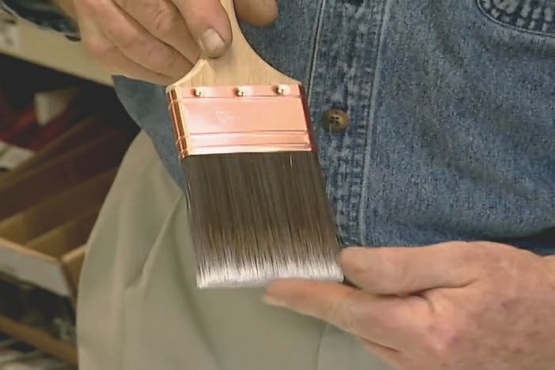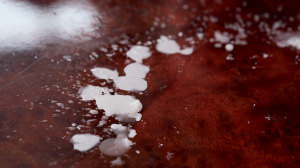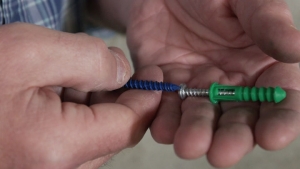Building a Fireplace – Learn How to Build Your Own Fireplace Mantel
How to Build a Wood Fireplace Mantle and Surround with Classic Design and Details.
Enhance your existing fireplace surround, removing flat trim and adding a three-dimensional wooden mantel and pilasters/columns to make it the centerpiece. Build components from stock lumber and molding using a table saw and circular saw. Attach them with a nail gun and construction adhesive. Spackle the nail holes, sand, and then paint to match the rest of your home's decore.
Read More
Remove Flat Trim with a Pry Bar and Putty Knife
Pry off existing trim with a small pry bar and wide putty knife. Position the putty knife between the wall and the pry bar and lever against it to avoid gouging the plaster or drywall behind it.

Cut Vertical and Horizontal Surround Components from Standard Dimension Pine
Use a circular saw and table saw to cut standard dimension pine lumber to lengths and widths required for the horizontal portion and sides (pilasters or columns) of the fireplace surround. Cut the mantel and molding as well.

Assemble and Position the Pieces That Form the Wooden Surround
Use glue and a pneumatic nail gun to assemble the vertical and horizontal components of the wooden surround. Locate wall studs and mark positions with a bar level to ensure they're plumb and horizontal. Nail up the horizontal member first.

Glue the Edges of the Surround's Sides That Touch Tile
Apply construction adhesive to the inner edges of the two surround sides (pilasters) that rest on top of tile. Ensure the sides are plumb and resting squarely on the floor and then attach with a nail gun.

Combine a Pine One-by-ten and Decorative Molding for the Mantel
Miter the corners of decorative molding and glue and nail them to a pine one-by-ten for the mantel. Set the molding in from the edge of the board to create an additional level in the decorative wood profile.

Position and Secure the Mantel with Construction Adhesive and Nails
Apply dollops of construction adhesive to the upper surfaces of the horizontal and side components of the surround. Position the mantel on top, level it, and secure it with the nail gun.

Position and Secure Plinth Blocks at the Top and Bottom of the Pilasters
Use the pneumatic nail gun to attach a decorative plinth block to the top, bottom, and sides of the pilasters (the vertical sides of the surround) butted against the bottom of the mantel and resting on the floor tile.

Miter Decorative Molding for the Face of the Surround
Miter the corners of stock molding to decorate the fronts of both pilasters/columns and the horizontal component of the surround. Attach it with a brad nailer.

Add Molding at Joints between Plinth Blocks and the Surround
Use the brad nailer to attach decorative molding to the exposed edges of the plinth blocks where they meet the surround. Miter the ends where they will meet at a corner.

Spackle Nail Holes and Imperfections Prior to Painting
Fill nail holes and any other imperfections in the wood with interior-grade spackling compound. Allow it to dry, sand it, and then paint the mantel and surround to match the rest of the room's décor.
Related Tips
Blog Articles
Have You Heard of Landscape Glue?
You love the rustic charm of a gravel walkway, but the constant scattering of stones across your lawn and patio can be a real headache. Whether it’s from pets, lawn mowers, or just foot traffic, it seems impossible to keep those stones in place. Sound familiar? Well, Brian shows us a simple DIY method using landscape glue to keep your gravel path looking pristine and, more importantly, in place.
How to Remove Candle Wax Drips: Two Effective Methods
Candles create a warm and inviting atmosphere, but those pesky wax drips can be a real headache. Luckily, Brian shows us a couple of effective methods to tackle this issue, and they involve two very different temperatures: hot and cold. Here, we'll explore two effective methods: one using cold and the other using heat.
Guide to Hanging on Masonry Walls
Ever wondered how to hang that picture frame or shelf on a brick or concrete wall? It can seem daunting, but with the right tools and techniques, it's a straightforward DIY project. This guide breaks down two common methods: using concrete screws and using anchors, making it easy for you to tackle your next hanging project.









